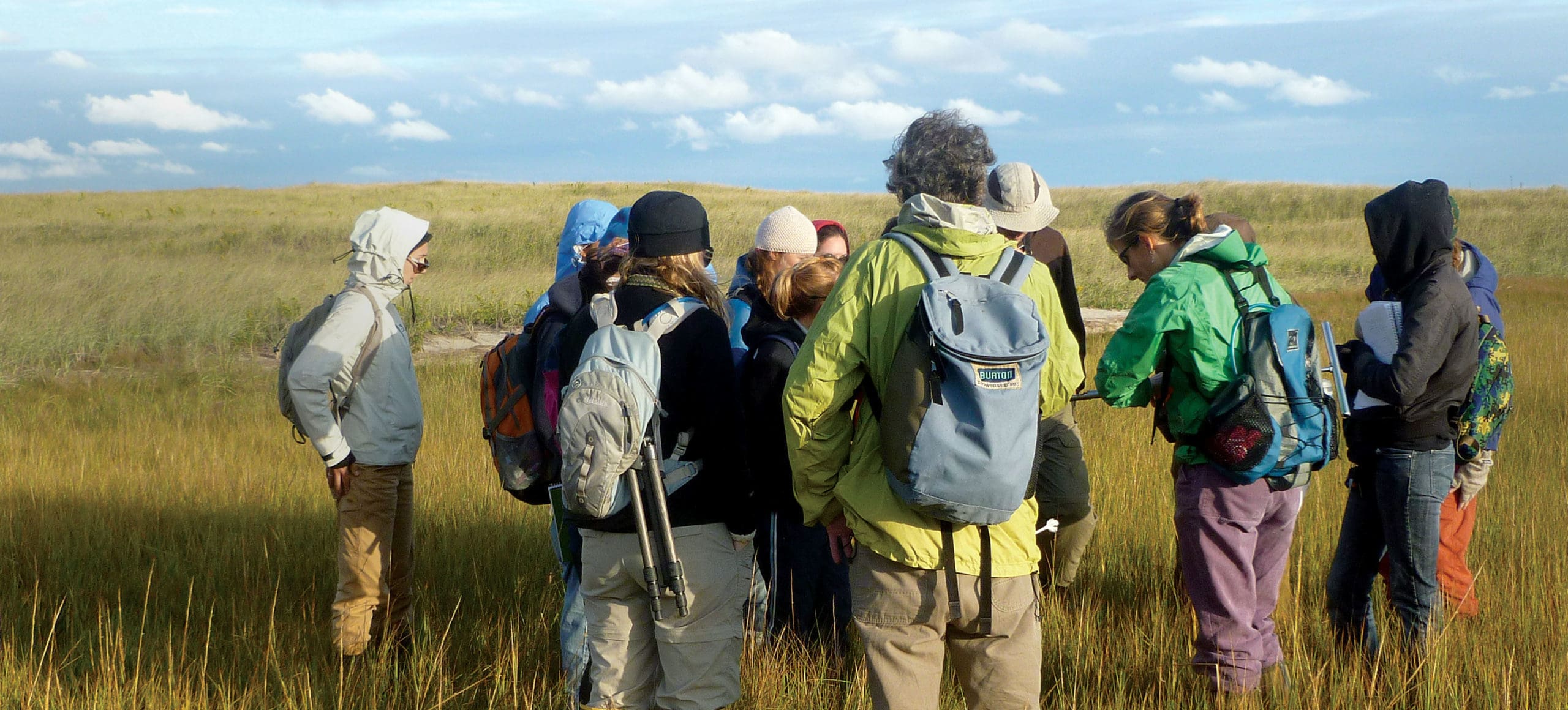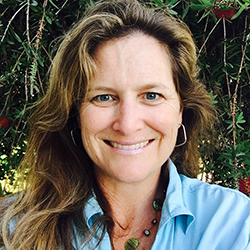Certificate
Certificate in Food Justice and Resilient Communities
Champion access to nutritional meals and increase food security.
Through community, workplace, and campus gardens, make healthy food accessible in every community to increase food security, mitigate climate change, and build community resistance. While this passionate and growing movement is gaining momentum, we still have a lot of work to do until every citizen has equal access to the fresh fruits and vegetables that should be a staple of their diets. We’re here to help you empower people to connect with the sources of their food, practice healthy eating, and build communities with a high degree of food security to strengthen personal, communal, and environmental resiliency and health.
Antioch’s New England campus offers this degree, available online and in person.


"I have always been drawn to nature in a way that was beyond recreation....the connection was always spiritual. By the time I was in high school, I was ready to devote myself to her protection as a career," she says. "[We need] to center the voices, needs, and experiences of Black, Indigenous, and other People of Color in the environmental movement....I’d like to permanently flip the paradigm of what it means to do environmental work in this country."
Nia Keith ’09
Vice President for Diversity, Equity, Inclusion, and Justice (DEIJ), Mass Audubon
Try Us Out
Wondering if Antioch ES MS is right for you? Prospective students can earn up to three credits in a semester at a highly reduced rate. These credits are transferable into the ESMS degree.
Program Overview
Keene, New Hampshire, is committed to becoming the “healthiest community in America” by 2020 (Healthy Monadnock). The “Farm to School” movement is reshaping school lunch programs across the U.S., and various efforts are improving access to healthy food and reducing food insecurity across the globe. AUNE’s Community Garden Connections (CGC) has several robust food justice and garden education programs to complement this certificate, including community-based gardens, workplace gardens, and campus gardens. Over 500 community members participate in CGC programming annually.
Degree Requirements
Requirements
Students complete the required courses from within the Environmental Studies department, a minimum of 3 credits from each of the following areas: Certificate Core Requirement (minimum 3 credits)
- Community & School-based Sustainable Food Systems (3 cr)
- Citizen Participation & Sustainable Communities (3 cr)
- Civic Ecology & Community Resilience (3 cr)
Resilience & Ecological Health (minimum 3 credits)
- Climate Change Resilience, Adaptation and Mitigation (3 cr)
- Soil Ecology (3 cr)
- Principles of Sustainability (3 cr)
Application (minimum 3 credits)
- Program Evaluation for Environmental and Conservation Educators (3 cr)
- Program Planning & Design (3 cr)
- Professional Internship related to food justice, and resilient communities (3 cr)

Elizabeth McCann, PhD
Core Faculty
Environmental Studies & Sustainability
Centers and Resources
Additional Information
Yes, you can complete this certificate entirely online. These courses are synchronous and, in some cases, asynchronous. Virtual synchronous course class sessions are offered one evening during the week (Monday-Thursday evenings, ET) and on weekends. You can also choose to take courses with us in person, including field-based courses and campus-based intensives.
The certificate can be completed within 32 weeks. Food Justice and Resilient Communities certificate courses meet one day/week or as intensives, aligned with our current Environmental Studies’ delivery models.
Graduates of our programs are employed in many sectors of environmental work, from private consulting and regulatory enforcement to conservation institutions, formal and informal educational settings, government agencies, advocacy organizations, and the arts.
Faculty Spotlights

Michael Akresh, PhD
Core Faculty, Director

Jean Kayira, PhD
Affiliate Faculty

Jason Rhoades, PhD
Core Faculty

Dawn Murray, PhD
Core Faculty
Admissions / Cost
Deadlines
| Program | Term | Deadline |
|---|---|---|
| Environmental Studies Certificates | Summer | April 15 |
| Fall | July 15 | |
| Spring | December 1 |
How to Apply
- Complete the online admissions application, including the following:
- Resume/curriculum vitae (CV)
- Official transcripts from all colleges or universities where you earned a degree or certificate.
- email transcripts to [email protected], or
- mail to:
Office of Admissions
Antioch University New England
40 Avon Street
Keene NH 03431-3516
- Non-refundable $50 application fee
- There are additional requirements for International applicants and applicants without a Bachelor's degree
- Master’s and Certificate Programs do not require the GRE or any other standardized test for admissions. We consider all of your application materials and evaluate your academic potential in a variety of ways.
Official transcripts should be emailed to [email protected] or mailed to:
Office of Admissions
Antioch University New England
40 Avon Street
Keene, New Hampshire 03431-3516
All application materials submitted become part of an applicant’s file and cannot be returned.
LEARN MORE
Questions about the Admissions process? Contact Admissions at [email protected]
Tuition & Financial Aid
A college education is an investment in your future. Let us help you understand the costs and explore the resources available to help make your college education even more affordable. The majority of AUNE students finance their education through some form of financial aid. You may not be sure which federal, state, public and private aid packages – such as loans, scholarships, and grants—are right for you. Our staff is here to help you, so you can focus on what’s most important: beginning your academic program at AUNE.
Cost
| Department/Program Name | Tuition Cost per Credit | Total Program Credits |
|---|---|---|
| Certificates: *with careful course selection all certificates are possible within the Environmental Studies MS degree requirements |
||
| Applied Spatial Analysis for GIS | $840 | 9 |
| Climate Change Education | $840 | 9 |
| Climate Resilience | $840 | 9 |
| Conservation Psychology | $840 | 9 |
| Environmental and Sustainability Education | $840 | 12 |
| Food Justice and Resilient Communities | $840 | 9 |
| Socially Responsible Organizational Leadership | $840 | 9 |
| Environmental Studies, Certificate | $840 | 9 |
| View the Cost of Attendance Components | ||

Start your Antioch Journey
Take your next step - talk to our admissions team to find the right program for you.
